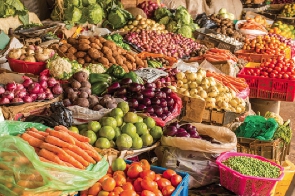The Peasant Farmers Association of Ghana (PFAG) is faulting the Ministry of Food and Agriculture (MoFA) in the implementation of its flagship agricultural programme’s second phase, Planting for Food and Jobs II.
The Association claims its implementation is skewed with several inconsistencies that do not favour farmers. These discrepancies, according to the Association, are creating several inconveniences that currently curtail agriculture production.
The Executive Director-PFAG, Dr. Charles Nyaaba, spoke to our correspondent and explained how important it is that government allows the private sector to lead the programme’s inputs distribution and implementation.
“The master-aggregator being MoFA is not ideal for implementation. This is because once the ministry is distributing inputs, farmers will not pay,” Dr. Nyaaba notes.
The only way to ensure PFJ 2.0’s sustainability is for politicians to take their hands off the programme and allow technical directors in the ministry to lead with the project’s implementation, PFAG asserts.
Additionally, the process of giving inputs to selected farmers, according to PFAG, is disappointing and should be addressed by government.
“As it stands, farmers are not aware of the criteria for selecting beneficiaries to be given inputs. PFAG wants to know what criteria and procedures are being used for the selection. This situation breeds hoarding and politicisation of the programme,” Dr. Nyaaba added.
MoFA, the PFAG explained, must focus on marketing and supporting farmers with guaranteed markets for their produce. PFAG has revealed that about 80 percent of farmers have not been registered on the programme as of June 2024.
National President of the Association, Wepia Awal Addo, said there appears to be a lack of interest in farmers’ welfare, particularly as farmers are not provided with any information to aid in planning.
With threats of food scarcity looming, the populace is expecting that food production in the country will be improved – and it is through such programmes such as PFJ that we should be able to boost production for food self-sufficiency.
Anything less than that does not merit being considered a major policy. We have had the first phase to learn from our mistakes, and to hear PFAG again complain about PFJ II’s implementation means we need to make the strategy more responsive to farmers’ needs.
Business News of Friday, 2 August 2024
Source: thebftonline.com

















